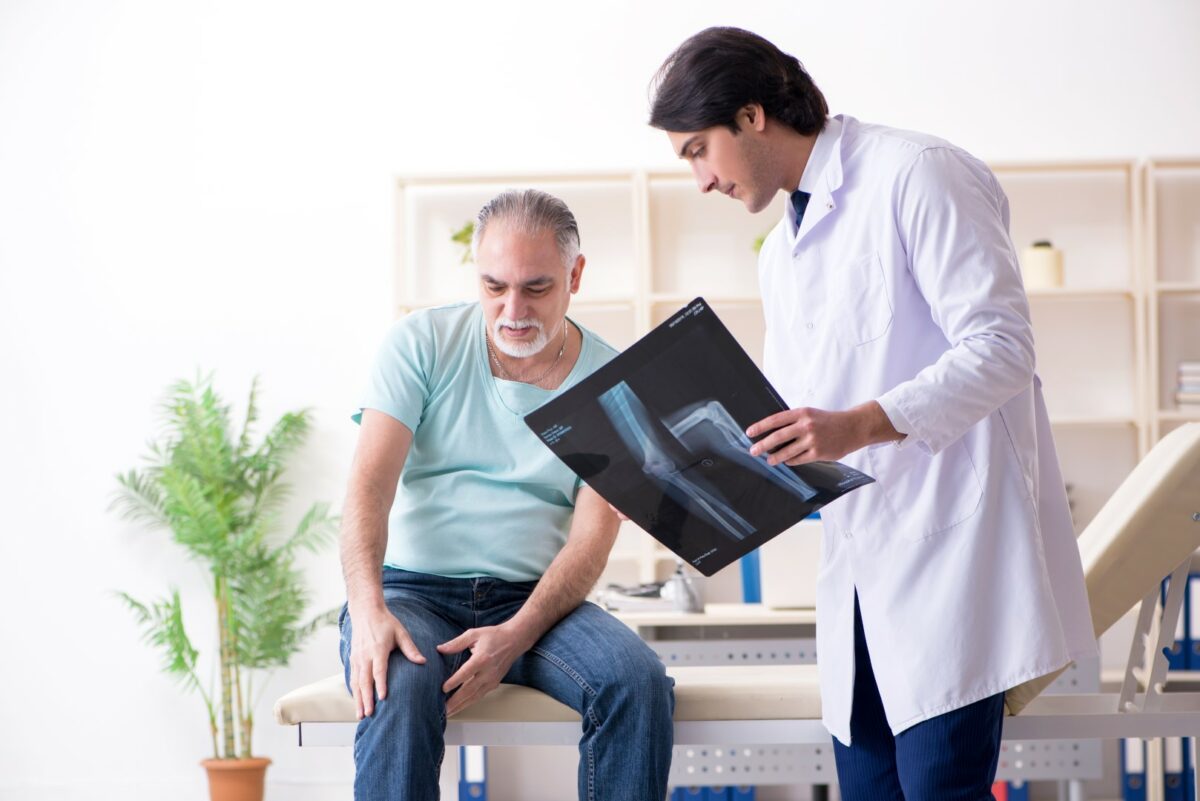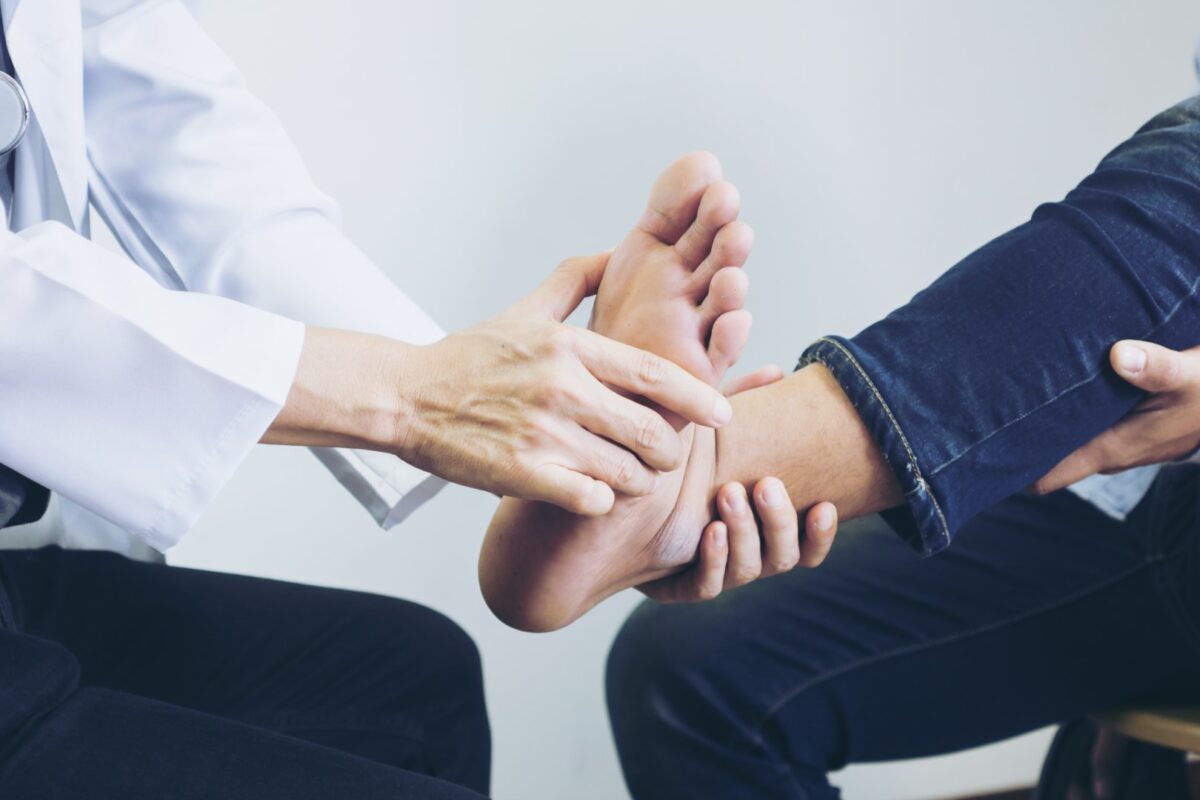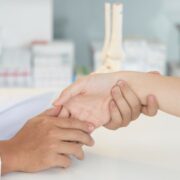
Cartilage is a firm, rubbery material that covers the ends of our bones inside our joints, which is pivotal in allowing our joints to glide effortlessly. When your hip, ankle, or knee cartilage gets damaged or torn, you may experience pain and swelling. Orthopedists have a number of nonsurgical, conservative treatment options to relieve the symptoms caused by damaged cartilage and prevent further damage from occurring.
Symptoms of Cartilage Damage
Common symptoms of damaged cartilage include joint pain, stiffness, and swelling. If your knees are starting to feel like a rusty hinge or you feel pain in your hip or ankle when you climb stairs, cartilage wear might be the issue. These signs should not be ignored, as they are your body’s signals that something is amiss.
Damaged knee cartilage symptoms:
- Grating or popping sounds and sensations when moving the knee joint
- Stiffness in the knee
- A reduced range of motion
- Instability of the knee
- Swelling
- Increased knee cartilage pain when going up or down stairs
Damaged ankle cartilage symptoms:
- Ankle instability
- Joint locking
- Pain, especially when putting weight on the ankle
- Swelling
- Weakness
Damaged hip cartilage symptoms:
- Pain in the hip is constant, even when resting, and gets worse when you stand or walk
- Stiffness and swelling
- A grinding sensation or a feeling of the joint catching, locking, or giving way
Diagnosing Knee Cartilage Damage
When you visit a doctor with pain or swelling around your knee, hip, or ankle, our specialists use a combination of your medical history, physical examinations, and advanced imaging tests like MRIs or digital X-rays to get a clear picture of your cartilage condition. These images give a detailed view, revealing the extent and location of cartilage damage.
Nonsurgical Treatments for Damaged Cartilage
 Unfortunately, cartilage is not as regenerative as some tissues in our bodies, and your body’s ability to repair cartilage is limited. However, with the right nonsurgical treatments and care, we can support the body’s natural healing mechanisms and improve joint function significantly.
Unfortunately, cartilage is not as regenerative as some tissues in our bodies, and your body’s ability to repair cartilage is limited. However, with the right nonsurgical treatments and care, we can support the body’s natural healing mechanisms and improve joint function significantly.
There are several nonoperative treatments that can help alleviate pain and discomfort caused by knee cartilage damage. The same treatments can be used for your hip and ankle cartilage damage, including:
- Resting
- Applying ice to the affected joint for 15 minutes every one or two hours to reduce swelling
- Elevating the joint to reduce swelling
- Physical therapy: A personalized physical or occupational plan can help strengthen the muscles around the joint, providing better support and reducing pain.
- Medications: Nonsteroidal anti-inflammatory drugs (NSAIDs) such as ibuprofen, naproxen, and meloxicam can reduce inflammation and discomfort caused by a cartilage injury. Acetaminophen can also help to manage pain but does not reduce inflammation.
- Injections: Cortisone injections, for instance, can lubricate the joints to reduce friction between bones and improve movement, and corticosteroid injections can reduce inflammation.
- Wearable assistive devices: Orthopedists may recommend a knee or ankle brace to take pressure off the damaged joint.
- Lifestyle modifications: Sometimes, a few changes in daily activities can make a huge difference. Avoiding sports and activities that cause pain or involve heavy use of the affected joint may be recommended. Losing weight, for example, can take some pressure off the joints, and specific exercises can fortify the muscles without stressing the cartilage.
At EmergeOrtho—Blue Ridge Region, our team of board-certified and fellowship-trained subspecialists have treated thousands of patients with worn, torn, or damaged cartilage in their knees, ankles, and hips. Whether caused by a degenerative condition, wear and tear over time, or an accident, our multidisciplinary team of professionals can help you get the relief you need.
Our clinics are fully equipped with advanced diagnostic services, and we have a team of licensed physical and occupational therapists working closely with our physicians.
For more personalized advice and a treatment plan tailored just for you, you can request an appointment here. We are committed to helping you Emerge Stronger. Healthier. Better.







